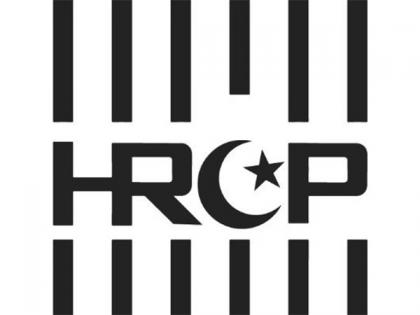HRCP sounds alarm over deepening human rights crisis in Balochistan
By ANI | Updated: August 7, 2025 16:59 IST2025-08-07T16:54:16+5:302025-08-07T16:59:52+5:30
Islamabad [Pakistan] August 7 : The Human Rights Commission of Pakistan (HRCP) has published a critical fact-finding report that ...

HRCP sounds alarm over deepening human rights crisis in Balochistan
Islamabad [Pakistan] August 7 : The Human Rights Commission of Pakistan (HRCP) has published a critical fact-finding report that reveals a troubling human rights situation in Balochistan. Following a week-long visit to Turbat and Quetta, the HRCP team, which included chairperson Asad Iqbal Butt, former senator Farhatullah Babar, and senior human rights advocates such as Nasreen Azhar and I A Rehman, recorded disturbing trends of enforced disappearances, extrajudicial executions, suppression of civil liberties, and significant economic and social neglect.
The report identifies enforced disappearances as the most urgent issue. Families of those affected provided harrowing accounts of their relatives being taken by security forces, frequently without any warrant, charges, or legal proceedings. A large number of the missing have been unaccounted for years. The report noted the ongoing "kill and dump" practices reportedly conducted with total impunity. The HRCP emphasises that these disappearances are not singular events but part of a broader systemic issue.
The militarisation of civilian life was a dominant theme during HRCP's investigation. In both Turbat and Quetta, the noticeable presence of security forces, including the army, Frontier Corps, and intelligence agencies, has fostered an environment of intense fear and distrust. Residents feel besieged in their areas. In several locations, the presence of these forces has suppressed open dialogue, dissent, and even the ability to engage in ordinary civic activities.
The report also indicates that journalists in Balochistan work under considerable constraints. Many admitted to practising self-censorship, citing intimidation and threats from both governmental and non-governmental entities. Delicate subjects such as enforced disappearances, military actions, or political dissent are deemed taboo. The diminishing space for free media is reflected in the experiences of political activists and student leaders, many of whom endure surveillance, arbitrary detention, and restrictions on movement. Female activists encounter additional challenges, facing not only state pressure but also societal obstacles.
During discussions with families of the disappeared, HRCP discovered significant discontent with the Commission of Inquiry on Enforced Disappearances (COIED). The families stated that the Commission has primarily failed to provide justice, often serving as a bureaucratic obstacle rather than an accountability mechanism. Some families disclosed that after registering complaints, they were subjected to further harassment by security forces, compelling many to cease legal pursuits altogether.
Economically, the report criticises the evident exploitation of Balochistan's natural resources, including gas, minerals, and fisheries, which yields minimal benefit for residents. Even though Balochistan is resource-rich, it continues to face high poverty rates, inadequate infrastructure, and a lack of job opportunities. Development projects like the China-Pakistan Economic Corridor (CPEC) are perceived by many as externally driven initiatives that displace communities and favour outsiders, rather than benefiting local populations.
The HRCP report also decries the state of public services in Balochistan. Educational institutions are severely underfunded, with regular teacher absenteeism and deteriorating facilities. The healthcare system is equally bleak, grappling with chronic shortages of staff, medicines, and equipment. Many citizens shy away from law enforcement agencies due to fears of unjust treatment or arbitrary detention. Access to justice is neither swift nor impartial, further diminishing public trust.
HRCP made a strong plea to the Pakistani government to reconsider its strategy regarding Balochistan. They stress that peace cannot be imposed through militarisation, fear, or coercive measures. Instead, the HRCP advocates for a transition towards justice, transparency, and political dialogue. The government must decisively eliminate the practice of enforced disappearances, hold those responsible accountable, and restore trust between the populace and law enforcement entities. Civilian spaces should be demilitarised, and the rights to dissent, protest, and organise should be reinstated. The media and civil society must be permitted to operate freely, without threats or intimidation.
Additionally, the Commission emphasises that development initiatives, including those under the CPEC umbrella, need to incorporate the meaningful engagement of local stakeholders and should provide direct advantages to the local communities. Resources sourced from Balochistan must be reinvested into its infrastructure, education, healthcare, and job sectors. Everyone should have access to justice, and it is essential to safeguard student unions and academic freedoms to create a more inclusive civic environment.
The HRCP determines that the situation in Balochistan is not simply a matter of security; it represents a political, economic, and humanitarian crisis that requires urgent action. Achieving enduring peace hinges on constitutional justice, respect for human dignity, and the authentic inclusion of the Baloch people within the nation's democratic framework.
Disclaimer: This post has been auto-published from an agency feed without any modifications to the text and has not been reviewed by an editor
Open in app